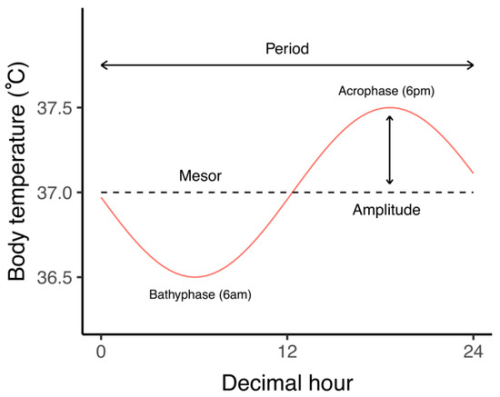A few different bodily processes in humans follow a stable, roughly 24-hour cycle. For example, the cortisol and melatonin levels in our blood. Physical parameters like your blood pressure and heart rate too.
Also under a circadian cycle is our core body temperature. We reach our minimum temperature about halfway through our sleep cycle. By the time we wake up, our bodies have warmed up slightly, but often not yet to our typical body temp.
So, we wake up feeling cold because we are cold. From a normal body temperature of 36.4-37.2 °C (97.5-98.9 °F), normal circadian fluctuations can take us up or down about 1 ˚C. It might not feel like a lot, but remember that most doctors consider fevers to start at 38 ˚C.
Interestingly, there seems to be some variation in when we reach our minimum temperature during the night. A 2001 study measured the temperatures of 172 young men and women and sorted them according to their self-declared status of “morning person”, “evening person” or “neither”. They found that morning people hit their minimum temps after an average of 3.5 hours, compared to 5.02 hours for neither types, and 6.01 hours for evening types. Since individuals tend to feel more alert and perform better on cognitive tasks at higher body temperatures, these differences in the circadian rhythm of body temperature may be one reason some of us struggle to wake up and feel alert immediately.

Figure source- https://www.mdpi.com/2079-7737/10/1/65







